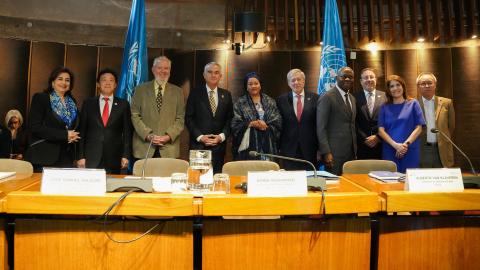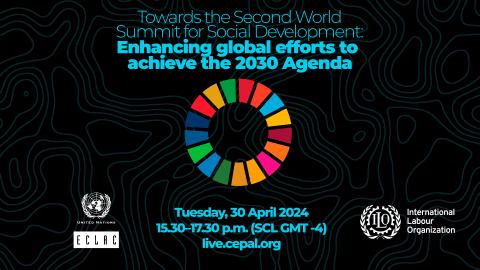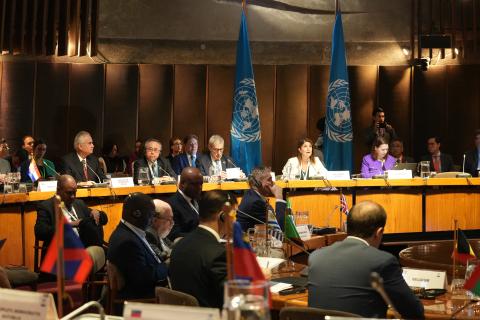Press Release
The Executive Secretary of the Economic Commission for Latin America and the Caribbean (ECLAC), José Manuel Salazar-Xirinachs, participated on Monday, July 17 in the European Union-Latin America and the Caribbean Business Round Table, which is taking place in the framework of the third EU-CELAC Summit being held in Brussels through July 18, with the attendance of Heads of State and Government and senior authorities from the countries belonging to both blocs, along with representatives of the private sector, academia and civil society.
At the high-level round table, ECLAC’s leading authority served as moderator of a panel entitled “Enhancing Health Resilience,” where participants addressed the key drivers for stimulating successful investments in the pharmaceutical, biotech and medical-technology industry with the aim of boosting regional innovation and facilitating equitable access to health inputs and products.
The speakers included Chrysoula Zacharopoulou, Minister of State for Development, Francophonie and International Partnerships of France; Martin Seychell, Deputy Director General for International Partnerships of the European Commission; James Fitzgerald, Director of the Department of Health Systems and Services at the Pan American Health Organization (PAHO); and representatives of the pharmaceutical industry from Argentina, Chile, France, Germany and Uruguay.
In his role as facilitator of the discussion, José Manuel Salazar-Xirinachs emphasized that the healthcare industry and services is a key sector for economic and social well-being and development, since it generates high-quality jobs with strong linkages to the rest of the economy.
“Sales of pharmaceutical products in Latin America and the Caribbean doubled from US$35 billion in 2008 to nearly US$70 billion in 2017 and are expected to almost double again to around US$135 billion by 2027. This is close to 8% of the global market,” he explained.
The senior United Nations official also noted that the document prepared by ECLAC for this EU-CELAC Summit – entitled Investment and cooperation opportunities for Latin America and the Caribbean and the European Union – includes the pharmaceutical and life sciences industries, as well as the medical devices industry, as key areas within a list of 14 sectors that offer major opportunities for growth, jobs, development, and for cooperation between Europe and Latin America and the Caribbean.
He indicated in this area that, partly motivated by the impact of the COVID-19 pandemic, the two regions have already been focusing on these sectors and have developed initiatives and an inclusive bi-regional dialogue to enhance health resilience. An example of this is the Plan for Self-Sufficiency in Health Matters, adopted in September 2021 by the Community of Latin American and Caribbean States (CELAC) and which was prepared by ECLAC, at CELAC’s request.
“The CELAC Plan is a great step forward, since before it, we did not even have an integrated regional diagnosis. But there are many implementation challenges, including the capacity to coordinate multiple actors from many countries towards concrete actions; guaranteeing the participation of the ministries of science and technology, industry and trade, in addition to health ministries; and the application of cluster-based approaches to governance and coordination, including the private sector, and clear execution units and responsibilities,” ECLAC’s Executive Secretary stated.
During his time in Brussels, José Manuel Salazar-Xirinachs will hold bilateral meetings with Matthias Berninger, Senior Vice President of Bayer, and Sergio Díaz Granados, Executive President of the CAF – Development Bank of Latin America and the Caribbean, in addition to talks with other senior authorities attending the EU-CELAC Summit.



